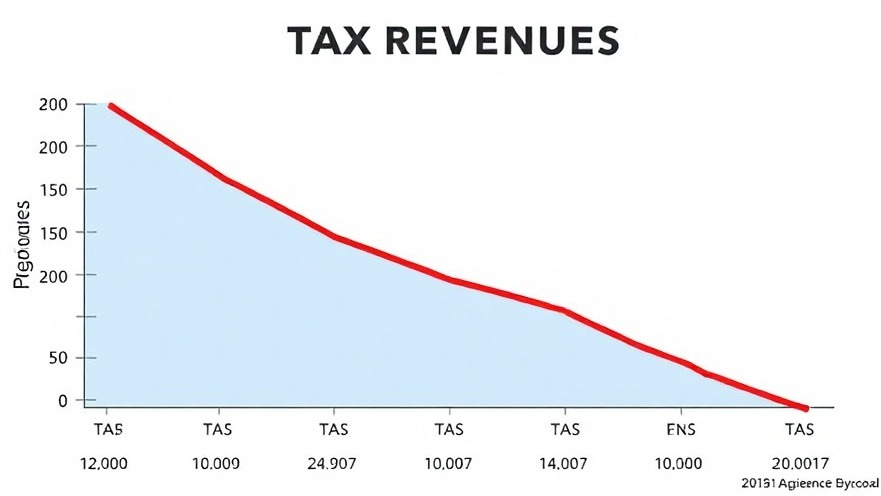
The Burden of Economic Uncertainty in Texas: Local Governments Struggle
Across Texas, from bustling Fort Worth to quieter counties, local governments are feeling the squeeze of economic uncertainty paired with inflation and strict property tax regulations. As cities and counties find themselves operating under increasingly tight budgets, the choices are stark: either raise taxes and fees or cut back on critical services. With pressures limiting budgets nationwide, Texas is no exception, showcasing how state policies tie into local fiscal health.
Population Growth Amidst Budget Constraints
Despite recent population growth—Fort Worth welcomed over 100,000 new residents from 2019 to 2024—the city is facing a staggering $17 million budget deficit. This not only raises questions about future financial planning but also sets a precedent for other cities in Texas that, despite burgeoning populations, are navigating similar economic challenges.
Sales Tax Revenue: A Downward Trend
Sales tax revenue, which is vital for funding essential services like police, and fire department salaries, is seeing a slowdown in growth. After benefiting from pandemic-related consumer spending, revenues are now normalizing, growing more slowly than the boom periods that followed lockdowns. Cities such as Austin, which once saw surges of over 21% in sales tax revenue, are now expecting stability or slight declines as consumer spending shifts toward non-taxable necessities like housing and food.
Impact on Local Services
With tighter budgets, the pressure on local services intensifies. Essential services like public safety, infrastructure maintenance, and community programs may face cuts. Residents that rely on these services could see a decrease in both quality and availability just as their needs rise with the growing population. This situation adds a layer of urgency to the need for policy reform at both local and state levels to create sustainable budgeting processes.
Connecting Economic Policy and Local Challenges
The challenges faced by Texas cities are emblematic of a larger national trend influenced by broader economic policies at the state and federal levels. The impacts of trade wars and immigration policies initiated during the Trump administration have driven both uncertainty and reduced consumer confidence, further impacting local sales tax revenues. The connection between these policies and local economic health should not be overlooked by lawmakers aiming to foster recovery.
Looking Forward: Predictions and Potential Strategies
Looking to the future, Texas cities may be forced to revisit their budgeting strategies. As they navigate looming budget shortfalls, officials must consider alternative revenue sources, such as adjusting tax policies or seeking new federal support for infrastructure improvements. Local governments may also explore partnerships with businesses and community organizations to harness additional resources.
Understanding the Community Impact
As local budgets tighten, the implications for communities are profound. Residents may feel the effects of inadequate public services, which could lead to diminished quality of life or increased crime rates. It is crucial for citizens to stay informed about local government plans and to engage with elected officials to advocate for more sustainable solutions.
This analysis underscores the crucial intersection between local economics and state policies. As residents of Texas navigate this challenging terrain, they must hold their leaders accountable for transparent and effective governance.
 Add Element
Add Element  Add Row
Add Row 



Write A Comment